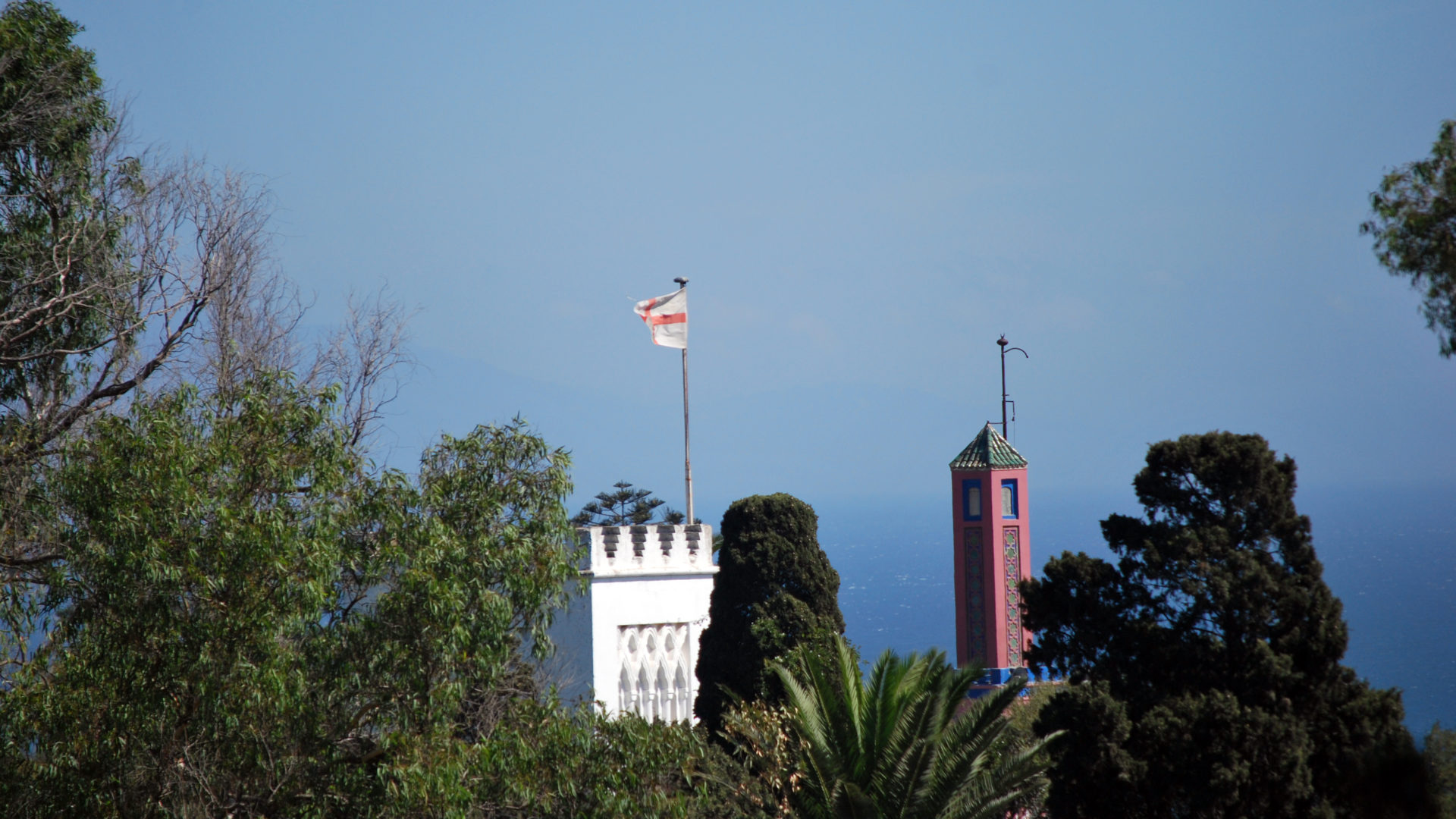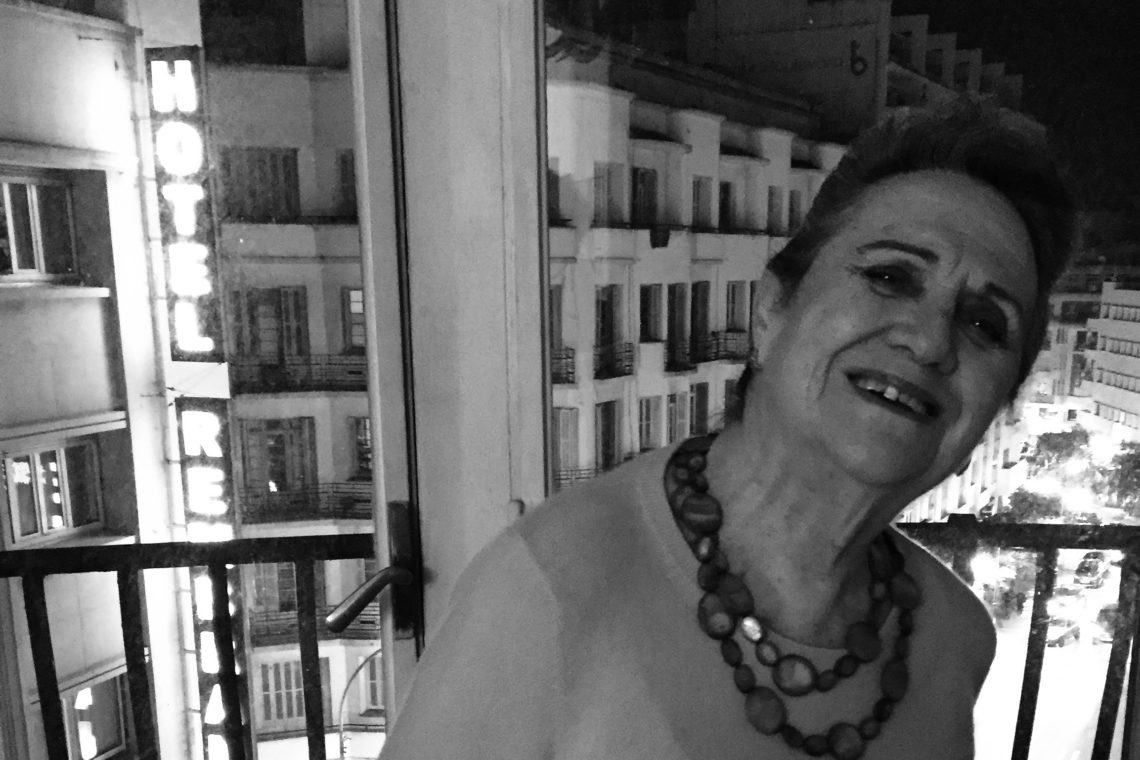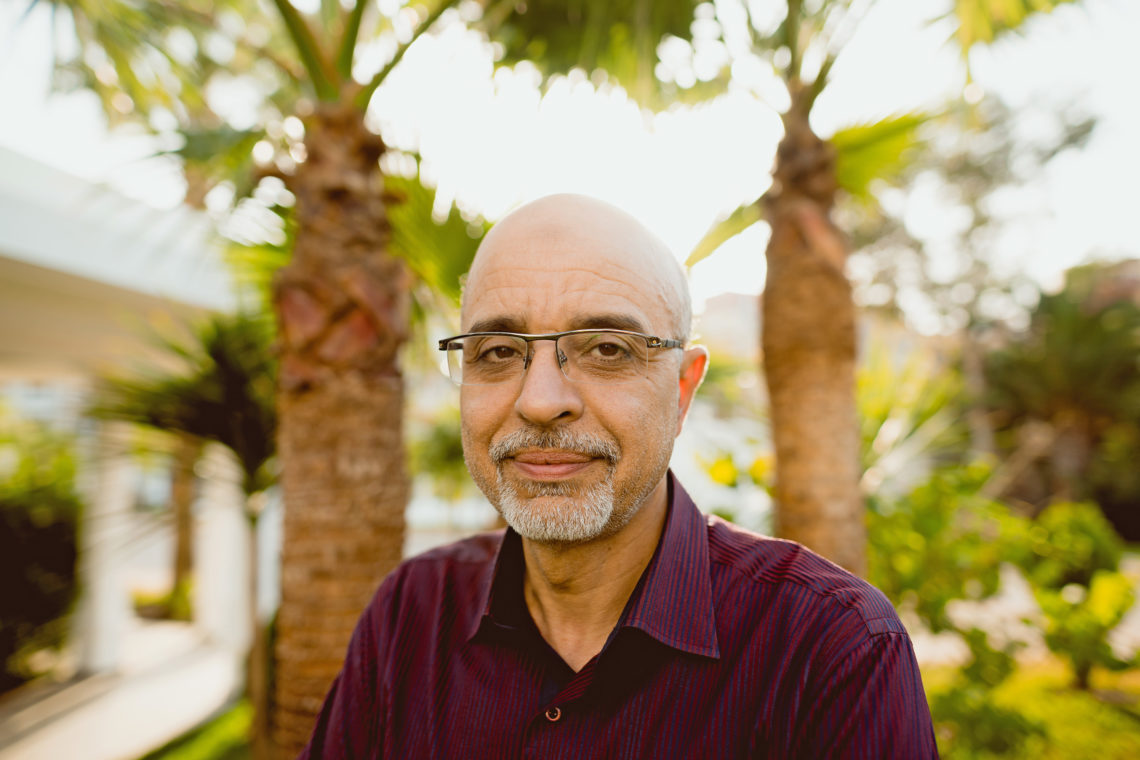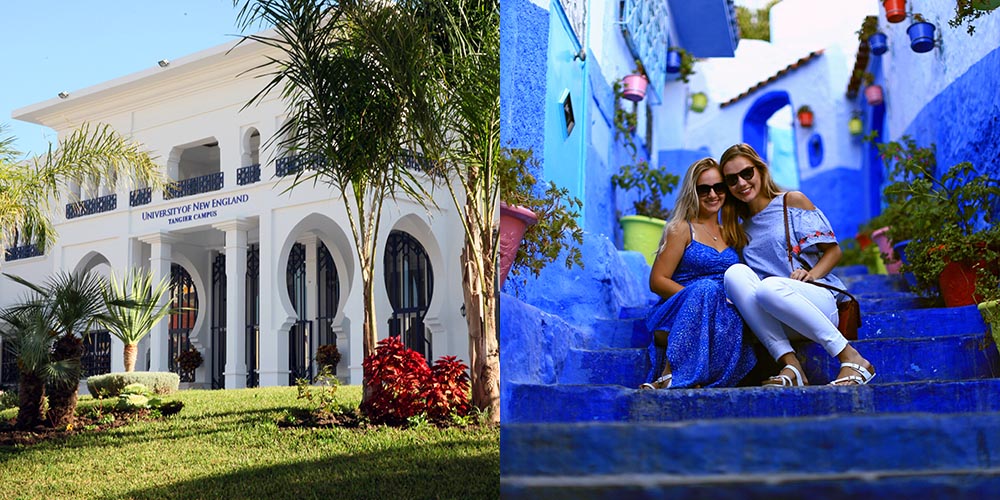On the outskirts of the medina, St. Andrew’s, a small white Anglican church, sits out of sight from the buzzing streets of Tangier and not too far from an old mosque with a red minaret. I had heard through local rumor that many African refugees look for help inside the walls of the welcoming church. Morocco, I’ve been learning, has a rich Muslim culture with strict rules regulating mosques and the Islamic faith. I had been cautioned not to overstep cultural boundaries. Maybe, I thought, I’d be less likely to transgress taboos in a church.
Walking through the gates of the church, smiles and friendly head nods caused the caution and fear to roll off my shoulders. While I don’t have a strong religious background, I felt an immediate connection to that holy place. After introducing myself to Father Simon, the priest of Saint Andrew’s, it didn’t take long for me to understand why so many African refugees have found peace and safety in his church.
Father Simon kindly thanked me for coming. His crooked, yellowing teeth and wrinkled skin didn’t stand out nearly as much as his eyes which were full of life and held many stories I was eager to hear. I wanted to insert coin after coin to hear him talk longer.
Before the many people wanting his attention interrupted us, I managed to ask him about the dozens of African refugees who fill the pews of his church. I wanted to understand what it was that attracted them to St. Andrews. He told me that one reason was the resources he provided for them, including the construction of a public kitchen and access to used clothing. He added that the church had organized two clubs, a choir, and a soccer team.
By creating the two clubs, he hoped to give people something to be a part of—something to keep them grounded. He wanted these refugees to know they could call Morocco home and could make a life here. If they left Tangier, he said ominously, many might die in their efforts to reach Spain.
Why, I was thinking, do so many people choose to leave their countries and why they choose to come to Morocco? Is Morocco their final destination, and if not, where do they hope to go? Being a soccer player myself, I was particularly intrigued with the soccer club. How had Father Simon influenced the lives of people considered unwanted by so many others through soccer?
I’ve been studying in Morocco for just over two months, and it has been a life-changing cultural experience. I chose to leave my home, the safest town in what people say is the safest state in America, to experience more of the world. Before coming to Africa, I lived a sheltered life, but I craved adventure and real experiences. Meeting people and learning new things makes me feel whole, and that is why I so badly wanted to understand and be a part of what Father Simon is doing for the African refugees.
While church deacons passed out apples and packaged cinnamon buns, Father Simon introduced me to the coordinator of the church’s soccer team, a man in a sharp suit carrying a battered leather briefcase. He combed his white bangs over his face with his fingers and quietly introduced himself as Jerry. At first, I could barely understand his English accent.
I told Jerry I was interested in getting involved with his soccer team. “Oh, you are?” His tone was so soft and fast; I found myself leaning in as close as I could to him. I was so close that I was tripping over my own feet.
Jerry and I walked and talked through the gravestones in the gardens surrounding the church, and he told me practice took place every Thursday.
Attempting to conceal my excitement, I pictured playing soccer, one of my life’s passions, with African refugees. My mind raced with questions. How are their skills? What language are they going to speak? How many players will there be? How old are they?. Soccer means the world to me, but what does it mean to these young men?
Jerry must have sensed my elation by the light in my eyes and the smile on my face because he directed me further into the garden to continue our conversation. In a serious tone, like a realist bringing a dreamer back to solid ground, he said: “I have a strong love and appreciation for these people.” Back in England, he has two adopted refugee brothers and, more than anyone, he wants to believe that the sub-Saharan refugees are all well-intentioned. But he issued a warning: “These men have no resources and can be sick or carry diseases, such as HIV and AIDS.” He also reminded me that many of them are desperate for survival. Needing money, they will do just about anything for it, whether that be begging or stealing.
My thrill suddenly morphed into caution and a bit of fear. What on earth was I getting myself into?
Morocco is the northernmost country in Africa and the desired destination for migrants because it leads to Europe. Dangers abound. The Strait of Gibraltar, where the Mediterranean and the Atlantic meet, has wrathful waters, and trying to make it across by dinghy is one of the many ways refugees lose their lives. The week of my visit, two of the church’s star soccer players, not even twenty years old, were found dead after attempting to get to Europe on a leaky ship. In his most recent Sunday sermon, Father Simon pleaded that if any of his church members planned to leave, they should at least say goodbye.
Father Simon explained to me that many of these people leave “Black Africa” in hopes of a better life, because they lack resources for their well being where they come from. War and the dry, desert-like lands in northern Nigeria, for instance, make it nearly impossible for many to survive.
I felt my face distort into a kind of grief as he shared the litany of misfortunes African refugees encounter in hopes of finding better lives. The chances of survival while making the trek from countries deep within the continent are slim, and the refugees confront death with every step they take.
Even once in Morocco, the refugees struggle to maintain a living. The priest shared that he is currently trying to help one of the soccer players who was evicted from his apartment only to end up in prison because he lashed out at a police officer. They have left their families, have no homes, and cannot keep up with the bills of maintaining a temporary home. On top of all of that, they have no idea what their next move will be, or when. Father Simon reminded me that many of them are dying without even having a dream.
Later in the church courtyard, Jerry introduced me to some of his players. Many switched their pastries from one hand to the other so they could properly greet me. Martin was the first player I met. Admiring how his dark skin contrasted with his white t-shirt, I asked him where he was from. He told me that he left Guinea about two years before. When I complimented him on his fine English, he said: “It’s taken a lot of practice, and then more practice.” I asked Martin about the soccer team and he, proudly standing tall, confirmed his place on it.
Martin introduced me to a few more of his friends and teammates, some of whom he grew up with, others he had met at the church and or on his soccer team. A young man, sitting on the bench waiting his turn to introduce himself, confidently told me “I’m the captain of this team.” He explained to me that through their practices they hope to get good enough to play professionally. Soon, sensing his overconfidence, he changed the subject by saying “girls are tough soccer players.”
We became fast friends. Each one of them made me feel welcomed and were almost as excited as I was for me to join them at their next soccer practice on the beach. After plugging Martin’s number into my phone (“Martin Soccer”), we said our goodbyes until Thursday.
When I showed up at the beach, I saw the soccer ball being kicked around, I dropped my water bottle and ran into the mix. After kicking it about, between each person, as if each pass was a greeting, I connected with just about everyone. We formed a circle and began juggling the ball to keep it from touching the ground. I watched each person handle the ball with his style and combination of taps—feet, knees, head, and chest. Each time the ball hit a body, sand erupted from the impact. We all cheered and clapped, celebrating the sequences of juggles. We all grunted and sighed when the ball touched the ground or bounded over to the water’s edge. I felt I had reached Nirvana.
Being at church and playing soccer on the beach taught me an important lesson in life. I felt privileged to be in their company. It not only made me feel grateful for what I have, but it made me realize how strong my fellow human beings are. Looking past our different backgrounds, we learned so much about each other. What came to mind was the core nature of the game: to work with other people and to think on your feet. Being on a team has always made me feel like I was a part of something bigger and, at that moment on the beach, I felt we could unite and create relationships while adding some lightness to the heavy world around us.
After meeting these young men, I received something more than any currency could purchase. It was a feeling of love and hope. Since studying abroad, I am learning to appreciate people for who they are, despite all differences. Soccer taught me how: with feet and a ball alone, we could share a moment regardless of age, gender, ethnicity, or any life struggles.





Comments are moderated by the editor and may not appear on this discussion until they have been reviewed and deemed appropriate for posting. All information collected is handled in a manner consistent with our privacy policy.